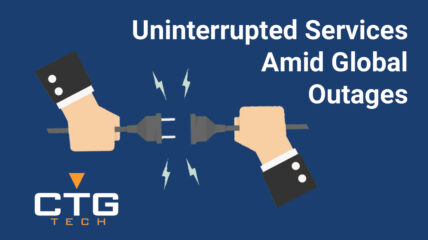Small and medium sized businesses have felt a big push to move out of their comfort zones in order to create convenience, trust, and safety for their customers and employees alike. The digital transformation industries have seen after the impact of the COVID-19 pandemic have shaped the future for the industry.
#1 – E-Commerce
Trends in the past have been moving towards e-commerce, but the impacts of last year have sped up the transition due to an overall increase in online shopping. Most small & medium businesses are beginning to provide their services online in addition to their normal product delivery, but even more are realizing there’s more profit from e-commerce. Customers are wanting more options for convenience, and an online platform is one way that need can be met.
#2 – Digital Footprint and Online Presence
Customers not only want convenience, but they are expecting it. Businesses have had to move their physical availability to online, and “68% of customers surveyed said COVID-19 raised their expectations for business’ digital capabilities.” These expectations are especially true for younger generations.
Businesses or services that are easy to find with a simple Google search are more likely for customers to use. There has been a bigger demand for digital-first service across all industries, and having the information that customers are looking for readily available is one example of a convenient, digital-first experience.
Creating a digital presence that customers will appreciate does not have to be difficult, and there are a few easy ways to begin implementing some changes.
- Offer online and mobile ordering and contact-less delivery
- Offer in-store and curbside pickup
- Add online scheduling options to your website
- Offer customer service chat bots
- Offer customer service via text, email, chat, phone, and more.
Remember, customers want options and convenience. The more ways you offer your services and support, the more customers will find convenience with your business and prefer your business over others.
#3 – Customer Relationships
The financial hardships of the pandemic have caused businesses and individuals to rethink their budgets and try to find new ways to save money. One of those ways is switching from name brand products to less expensive alternatives, which has created new customers for small businesses.
Customers are looking to shop small after watching so many small to medium sized businesses suffer during the pandemic. Customers will need to feel like they are getting enough value to switch from other brands, and featuring reviews on your website can be a good way to show the value.
#4 – Marketing
Investing in marketing efforts is just as important as securing an online presence for small and medium sized businesses. Marketing has come a long way from referrals and ads in newspapers. Most marketing is online now, and ensuring your business participates in it is important to retain and gain customers.
The most popular social media platforms have billions of users each, which includes your target audience. The popularity of paid ads has continued to increase, and the amount of money people spend on it too. Social media is the number one place for most marketers after the COVID-19 pandemic, and evidence suggests this is likely to stay the same for years to come.
#5 – Talent Investments
Just as it’s important to retain current customers, the same is true for your employees. Small to medium sized businesses have faced a long struggle with high turnover rates. Businesses will have to decide whether to improve culture and learning experiences in their workplace, or build a leadership team to address the turnover rates.
Either decision will need to be made strategically due to the restrictions most businesses are experiencing in their budgets. Employees want to be a part of a workplace with a strong culture that shows they are appreciated, and their roles matter just as much as any other. Everyone is craving relationships and trust after many were neglected during the pandemic, and employees are not an exception. Employee engagement among aspects such as skill development and milestones will begin to be a focus of workplace culture.
Small and medium sized businesses will continue to face adversity from the lasting impacts of the pandemic. Creating a secure workforce, made up of employees who appreciate their responsibilities and engage in the culture will help create resilience. Retaining customers, and reaching new customers is achievable with e-commerce strategies, online presence, and social media marketing efforts. Strategizing business developments from the perspective of customers who want convenience above all else is important.




